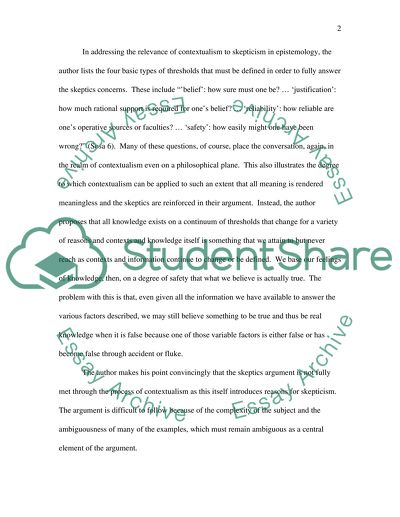Skepticism and Contextualism by Ernest Sosa Article. Retrieved from https://studentshare.org/sociology/1549122-philosophy-epistemology-article-skepticism-and-contextualism-by-sosa-ernest
Skepticism and Contextualism by Ernest Sosa Article. https://studentshare.org/sociology/1549122-philosophy-epistemology-article-skepticism-and-contextualism-by-sosa-ernest.


